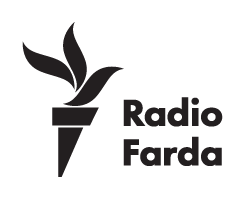Labor protests in the city of Arak, central Iran, gained momentum February 5 when hundreds of employees of Hepco, a private industrial complex, made a human chain around the city’s main square to protest their dire living conditions and demand the months of back pay they say they’re owed.
The striking workers chanted “We will not live under the burden of tyranny.” Addressing Minister of Labor Ali Rabiei, they sarcastically shouted “Down with labor, hail to the tyrant.”
“Many workers have not received their wages for the past 106 days, while scores of them have not been fully paid for 2016,” one of the workers told local news website Arak Emrooz, (Arak Today).
Hepco, a lucrative industrial complex founded before the Islamic Revolution, was privatized last year. Labor rights activists say that immediately following the privatization the workers’ difficulties began.
The private owners sacked thousands of workers and many employees lost their health insurance and pension benefits.
Iran’s Free Trade Union reported on its Telegram channel that “8,000 workers used to work at the Hepco industrial complex before its privatization. Now, only 1,000 of them are left.”
Past workers’ protests at the Hepco complex have been met with violence. According to media reports, as well as pictures and video clips published on social media, on September 19, 2017 anti-riot police attacked Hepco and another recently privatized industrial complex in Arak, Azarab, and arrested several protesters.
Some of the anti-riot forces drove through the protestors on motor bikes while firing tear gas and beating them with sticks, according to reports.
In one of the video clips published on social media, protesters can be heard shouting “Poor workers don’t deserve to be battered.”
Article 27 of the Islamic Republic’s Constitution stipulates, “Public assemblies and marches may be freely held, provided arms are not carried and that they are not detrimental to the fundamental principles of Islam.”
Workers at both Hepco and Azarab have repeatedly gone on strike in recent months to demand their unpaid wages. Many residents of Arak sympathize with the workers, and have begun attending their protest rallies in solidarity.
Meanwhile, the provincial Governor General Ali Aqzadeh has promised that two or three new shareholders are going to take over Hepco and resolve the labor dispute.
“We are going to transfer Hepco to the best alternative available,” Aqazadeh promised.
Nevertheless, the angry workers have dismissed the Governor General’s promises as “hollow” and called it a “delaying tactic” and a trick for creating confusion among protesters.
In a related development, three labor unions in Iran have demanded a big increase to the minimum wage, which is currently about $200 a month, after a thirty percent loss of value for rial, the Iranian currency, in the last six months.
The union for Tehran bus drivers, the Haft Tapeh sugar conglomerate and the Union of Retirees issued a statement arguing that a four-member family now needs 50 million rials a month to stay above the poverty line. That is equivalent to $1,050 based on the current exchange rate.



